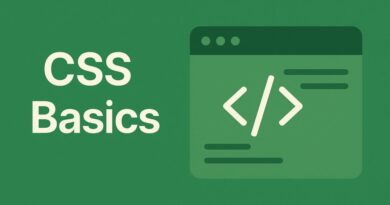A Simple Guide to Installing Packages with Composer’s require
Unlock Your PHP Projects: A Simple Guide to Installing Packages with Composer’s require
Are you a PHP developer looking to streamline your workflow and tap into a vast ecosystem of ready-to-use code? If not, you should be! Enter Composer, the indispensable dependency manager for PHP. Today, we’re diving into one of its most fundamental and powerful commands: composer require.
What’s the Big Deal with composer require?
Imagine building a house. You wouldn’t forge every nail, saw every plank, and mix every batch of cement yourself, right? You’d use pre-made, high-quality materials. In the world of PHP programming, composer require is your go-to tool for getting those “pre-made materials”—known as packages or libraries.
These packages are bundles of reusable code, often created by other talented developers, that solve common problems or add specific functionalities to your project. Think of them as superpowers you can easily add to your PHP application.
How composer require Works Its Magic
At its core, composer require does two crucial things:
- Finds and Downloads: When you tell Composer to
requirea package, it goes out to Packagist.org (the main repository for PHP packages) to find the correct version of that package. Then, it downloads all the necessary files directly into avendorfolder within your project. Thisvendorfolder is where all your external dependencies live. - Updates Your
composer.jsonandcomposer.lock: This is the dependency management part.composer.json: This file is like your project’s manifest. When yourequirea new package, Composer automatically adds it (and its version constraint) to this file. This ensures that anyone else working on your project, or when you deploy it, can easily install all the same dependencies with a simplecomposer install.composer.lock: This file is even more precise. It records the exact version of every single package and all their sub-dependencies that were installed. This guarantees that your project will always run with the exact same code, regardless of when or where it’s installed. It’s crucial for stable PHP development.
A Step-by-Step Example: Adding a Powerful HTTP Client
Let’s say you want your PHP application to make requests to other websites (e.g., fetch data from an API). Instead of writing all that complex HTTP code yourself, you can use a battle-tested package like Guzzle HTTP.
Here’s how you’d require it:
- Open your Terminal/Command Prompt: Navigate to the root directory of your PHP project.
- Run the Command:Bash
composer require guzzlehttp/guzzleThat’s it! Composer will now:- Download the Guzzle package and its dependencies into your
vendor/directory. - Update your
composer.jsonto include"guzzlehttp/guzzle": "^7.0". - Update your
composer.lockwith the precise versions of Guzzle and all its nested dependencies.
- Download the Guzzle package and its dependencies into your
Now, you can start using Guzzle in your PHP code!
Why composer require is a Game-Changer for PHP Developers
- Speed & Efficiency: No more manual downloads or copy-pasting code. Get what you need instantly.
- Reliability: Use well-maintained, community-vetted code that’s proven to work.
- Collaboration: Easily share project dependencies with your team. Everyone works with the same versions.
- Maintainability: Keep your project organized and updated effortlessly.
- Access to Innovation: Tap into thousands of open-source packages, from database tools to testing frameworks, security libraries, and much more!
Ready to Supercharge Your PHP Projects?
If you haven’t already, install Composer today. Then, start exploring the vast world of PHP packages on Packagist.org. With composer require, you’re not just installing code; you’re unlocking a new level of efficiency, reliability, and innovation in your PHP development journey. Happy coding!




